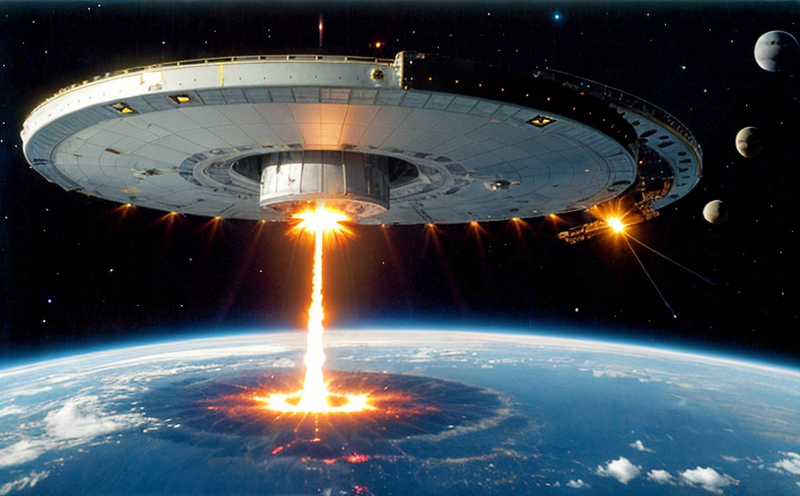Space Radiation & Aerospace Nuclear Testing
Space radiation and aerospace nuclear testing are critical components in ensuring the robustness and reliability of materials, electronics, and systems that operate in space or at high altitudes. The unique and harsh conditions found in these environments can have profound effects on materials and equipment, including increased radiation exposure, temperature variations, and mechanical stresses.
Our specialized laboratory is equipped to replicate and assess the impact of various types of space radiation, such as cosmic rays, solar particles, and secondary radiation from nuclear interactions. This testing allows our clients to understand how their products will perform in real-world conditions before they are deployed into space or at high altitudes.
The aerospace industry relies heavily on materials and electronics that can withstand the rigors of space travel, including prolonged exposure to vacuum, extreme temperatures, and radiation. By simulating these environments through rigorous testing protocols, we ensure the safety and reliability of our clients' products. Our services cater to a wide range of industries, from satellite manufacturers to spacecraft designers.
Key considerations in space radiation testing include:
- Dose Rate: The rate at which radiation interacts with materials or devices.
- Spectrum of Radiation: Different types of particles and energies present in the environment, including protons, electrons, and heavy ions.
- Material Properties: How various materials respond to different radiation levels and particle interactions.
- Testing Duration: The length of time products are exposed to simulated space conditions.
The aerospace sector demands high standards for the materials used in spacecraft, aircraft, and other equipment. By conducting thorough testing under controlled environmental conditions, we ensure that our clients' products meet these stringent requirements. Our services also extend to nuclear testing, which is crucial for components involved in nuclear propulsion systems or those handling radioactive materials.
Through our comprehensive approach, we provide detailed reports on test results, including any observed degradation or failure points. This information allows manufacturers and engineers to make informed decisions about product design and material selection. Our expertise ensures that products are not only functional but also safe for use in extreme environments.
Scope and Methodology
The scope of our space radiation & aerospace nuclear testing services includes a variety of tests designed to replicate the harsh conditions found in space or at high altitudes. Our methodology is guided by international standards such as ISO, ASTM, EN, and IEC, ensuring that our results are both reliable and internationally recognized.
| Test Parameter | Description |
|---|---|
| Dose Rate | The rate at which radiation interacts with materials or devices. This can vary widely depending on the type of radiation and the specific test conditions. |
| Spectrum of Radiation | Replicating the range of particle energies present in space, including protons, electrons, and heavy ions. |
| Material Properties | Evaluating how various materials respond to different radiation levels and particle interactions. This includes testing for degradation or failure points under extreme conditions. |
| Testing Duration | The length of time products are exposed to simulated space conditions, which can vary depending on the specific requirements of the product being tested. |
We use advanced instrumentation and facilities to ensure that our tests are conducted accurately and consistently. Our team of experts ensures that all tests comply with relevant standards and guidelines.
Customer Impact and Satisfaction
- Improved Product Reliability: By identifying potential weaknesses early in the development process, we help our clients improve the overall reliability of their products.
- Risk Mitigation: Reducing risks associated with product failure by ensuring that materials and electronics can withstand space or high-altitude conditions.
- Compliance Assurance: Ensuring compliance with international standards, which is essential for regulatory approval and market access.
- Increased Confidence in Design Choices: Providing detailed reports on test results helps engineers make informed decisions about product design and material selection.
Our clients benefit from the peace of mind that comes with knowing their products have been rigorously tested under simulated space conditions. This not only enhances product reliability but also reduces the risk of costly failures in the field.
Use Cases and Application Examples
- Satellite Manufacturing: Ensuring that satellite components can withstand space radiation and extreme temperatures during launch and orbit.
- Aerospace Propulsion Systems: Testing materials used in nuclear propulsion systems to ensure they can handle high-energy particles.
- Spacecraft Design: Evaluating the durability of materials used in spacecraft construction, including panels, wiring, and electronic components.
- Radiation-Resistant Electronics: Ensuring that electronics are capable of operating safely and efficiently in space or high-altitude environments.
Our testing services are designed to meet the specific needs of our clients across various aerospace sectors. From satellite manufacturers to spacecraft designers, we provide tailored solutions to help ensure product reliability and safety.





